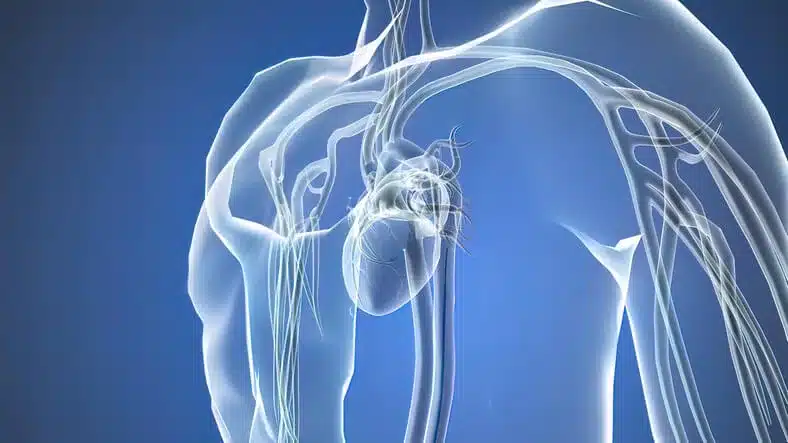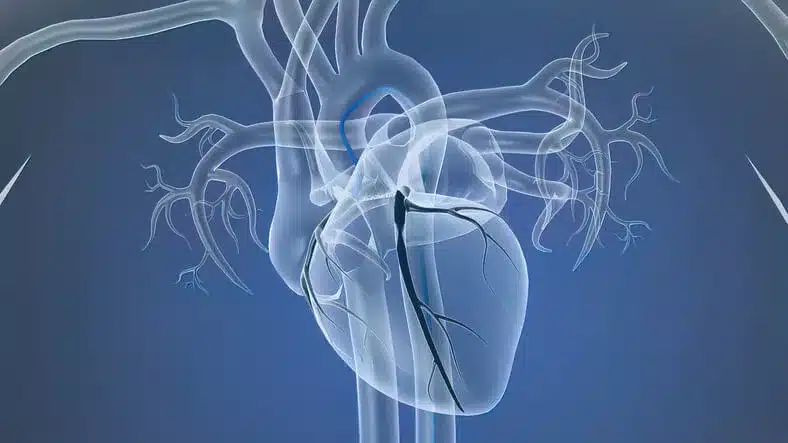Our heart supplies essential oxygen and nutrients to our body through approximately 100,000 quiet pulsations every day. Maintaining a healthy heart that works tirelessly is a crucial factor in determining the quality of our lives. However, many people in modern society suffer from cardiovascular diseases due to stress, improper dietary habits, and lack of exercise.
Cardiovascular disease is cited as one of the causes of death worldwide. According to the American Heart Association, more than one in three adults have some form of cardiovascular disease, causing millions of deaths each year.
The good news is that most cardiovascular diseases are preventable. Through healthy lifestyle habits and balanced nutrition intake, we can significantly reduce these risks.
In this article, we will take a closer look at ‘choosing healthy foods’, which lies at the core. By providing detailed information on how certain foods help our heart health and how much and how to consume such foods, we aim to help all of you adopt healthy eating habits.
1. Choosing Healthy Foods
Balanced meals are important in the prevention and management of cardiovascular diseases. In particular, foods that supply nutrients good for the heart should be prioritized.
Omega-3 Fatty Acids: Omega-3 fatty acids are known to be very beneficial for preventing heart disease. They lower blood concentration and improve blood flow, reducing the risk of heart disease and stroke. Salmon is one of the foods richest in omega-3 fatty acids, and it is good to consume it about twice a week. Avocados also have a lot of omega-3 fatty acids and provide monounsaturated fats along with several other essential nutrients which can help. Among nuts, walnuts contain the most omega-3 fatty acids, so it’s good to consume about a handful daily. Diverse Fruits and Vegetables: Fruits and vegetables provide essential vitamins, minerals, antioxidants, and are rich in fiber which helps reduce intake of saturated fat and sodium. It’s best to consume fruits and vegetables of various types and colors more than five times a day. Whole Grains: Whole grains provide various nutrients including protein, fiber, B vitamins etc., they help lower LDL (bad) cholesterol levels as well as stabilize blood pressure. Instead of rice choose whole grains like barley,oats or quinoa etc.,and eat them at least three times a day. Some foods in particular have great benefits for cardiovascular health:
Blueberries: Blueberries are rich in an antioxidant called anthocyanin which is known to lower LDL cholesterol levels as well as stabilize blood pressure.Blueberries are delicious on their own,and also great when added to salads,yogurts,cereals etc. Oatmeal: Oatmeal is rich in soluble fiber called beta-glucan which helps lower LDL cholesterol levels.Choose oatmeal for breakfast,and add fruits or nuts to increase its nutritional value. Dark Chocolate: Dark chocolate with over 70% cocoa content provides antioxidants beneficial for the heart.However,since chocolate itself has high calories too much consumption can lead to obesity so caution is needed. However,the amount you eat is more important than what you eat.Eating too much can lead to weight gain increasing risks for cardiovascular diseases.So even nutrient-rich foods should be eaten in appropriate amounts.Typically,a balanced meal would consist of about one cup (200ml) worth disposable plastic cup’s worth rice,palm-sized thickness amount protein source (meat,fish etc.),and filling up remaining half portion with variety colored vegetables .
2. Reducing Salt Intake
In our bodies, salt, or sodium, plays an important role in maintaining fluid balance and regulating nerve and muscle functions. However, excessive salt intake raises blood pressure and increases the risk of cardiovascular disease.
The way salt affects blood pressure is simple. Our body tries to maintain a balance between sodium and water. So if we consume a lot of salt (sodium), the body tries to store more water to dilute it. This increases the volume of blood in the body, which puts more strain on the heart and raises blood pressure.
So how much salt is too much? Most health organizations recommend limiting daily sodium intake to 2000mg (5g of salt). However, it is known that most people consume much more than this – an average of about 3400mg per day.
One of the best ways to reduce excessive salt intake is by preparing your own food. Processed foods contain large amounts of sodium for preservation and flavor enhancement. By cooking yourself, you can control how much salt is used.
Another important method is ‘reading labels’. Check the amount of sodium and %DV (Daily Value) on the ‘Nutrition Facts’ section on product labels. Products with a %DV less than 5% are classified as ‘low in sodium’, while those with over 20% are classified as ‘high in sodium’.
Lastly, using alternatives can also be helpful. Try adding flavor with other seasonings such as herbs, spices or citrus fruit juices like lemon instead of using salt. Through these few simple measures we can easily reduce our daily intake of salt.
Remember that managing your blood pressure plays a crucial part in cardiovascular health – and that starts with understanding how much salt we’re consuming.
3. Exercise
Exercise plays a crucial role in the prevention and management of cardiovascular disease. It strengthens the heart, lowers blood pressure and cholesterol levels, helps manage weight, and reduces stress.
Types of Exercises Beneficial for Heart Health
Aerobic Exercise: Aerobic exercise involves activities that use the heart and lungs to consume large amounts of oxygen. These activities include walking, running, swimming, cycling etc. Aerobic exercise strengthens the heart, improves blood circulation, lowers LDL (bad) cholesterol levels and raises HDL (good) cholesterol levels. Strength Training: Strength training is also important for cardiovascular health. Strength training includes weight lifting or abdominal exercises etc., which are good to do about 2-3 times a week. Stretching: Stretching increases flexibility in muscles and ligaments and reduces risk of potential injuries. How much should you do per week?
The American Heart Association recommends adults to have at least 150 minutes of moderate-intensity aerobic activity (like brisk walking or dancing) or 75 minutes of high-intensity aerobic activity (like running or swimming), along with strength training at least twice a week.
However if you’re starting an exercise program for the first time,it’s better to start small then gradually work up to these targets.
Also ‘exercise’ doesn’t necessarily mean going to gym or doing specific exercises.Everyday activities like climbing stairs,cleaning house,taking walks etc.,all count as aerobic activity too.
Things to be careful about while exercising
When exercising it’s important to check your physical condition and prepare for safety.Also since excessive exercise can put strain on your heart,it’s important you exercise at appropriate intensity level.If symptoms like chest pain,breathing difficulties,dizziness appear during workout immediately stop seek medical help.
Lastly consistency is key.Even just 10 minutes walk is good.Doing little bit everyday rather than once a week is better.Consistency over quantity or intensity will be most beneficial for cardiovascular health.
Exercise not only benefits cardiovascular health but also overall well-being.Start today with something that suits your situation and goals!
4. Managing Stress
Stress affects many aspects of our lives, including cardiovascular health. Stress raises blood pressure, increases risk factors for heart disease, and tends to undermine our healthy lifestyle habits. Therefore, stress management plays an important role in maintaining cardiovascular health.
Stress and Cardiovascular Disease
In stressful situations, our bodies trigger a “fight or flight” response. This response was helpful in the past when humans faced survival threats. However today, this response is mostly triggered by everyday situations like traffic congestion or workload.
When the “fight or flight” response is activated, the body releases stress hormones like adrenaline and cortisol. These hormones raise blood pressure and heart rate. If this state continues over a long term it can strain your heart and damage your circulatory system.
Also stress often leads to unhealthy behaviors.For example,stress can lead to increased alcohol consumption or smoking – all these are risk factors for cardiovascular disease.
Ways to Manage Stress
Exercise: As already mentioned regular exercise is an effective way to reduce stress levels especially if it’s an activity you enjoy! Meditation and Yoga: These activities help relax body mind which helps lower stress levels. Finding a hobby: A hobby helps divert thoughts promotes positive emotions. Seeking social support: Connections with friends family are important in reducing stress maintaining healthy lifestyle habits. Getting enough sleep: Sleep is when our body mind recover.Enough sleep is essential for managing stress. Seeking professional help: Sometimes you may need help from professionals.Consider seeking therapy or counseling from psychologists mental health experts etc. Stress management should be personalized.What might work for one person (like quietly reading a book meditating) might not work for another (who might prefer spending time with friends exercising).The key is finding what works best for you sticking with it.
Lastly remember that everyone experiences some level of stress.There’s no need (and it’s not possible) to completely eliminate it.What’s important how well we manage it.
5. Reducing Smoking and Drinking
Smoking and excessive drinking are major risk factors for cardiovascular disease. Reducing or completely eliminating these two habits is an important step in significantly improving heart health.
Smoking and Cardiovascular Disease Cigarette smoke contains thousands of chemicals, many of which are harmful to the cardiovascular system. In particular, the carbon monoxide in cigarette smoke binds with hemoglobin in your blood instead of oxygen, reducing oxygen supply. This causes your heart to work harder to supply more oxygen.
In addition, nicotine in cigarette smoke increases adrenaline (a stress hormone), raising blood pressure and heart rate and narrowing arteries. All these factors ultimately increase the risk of heart disease and stroke.
Despite this, the good news is that quitting smoking begins to improve your health status. For example, after one year of quitting smoking, the risk of a major myocardial infarction (MI) is halved; after 15 years it’s equivalent to that of a non-smoker.
Drinking and Cardiovascular Disease Excessive drinking also has negative effects on physical health. Alcohol raises levels of triglycerides – a type of fat in your blood – leading to arteriosclerosis (hardening arteries) high blood pressure among other threatening conditions.
However on the flip side moderate alcohol consumption can have positive effects on heart health.The generally accepted “moderate” drinking limit is no more than 2 drinks per day for men 1 drink per day for women men over age 65.
But this doesn’t mean it’s recommended for everyone.Particularly those with tendency towards alcohol addiction,pregnant women people with certain medical conditions(like liver disease) should avoid alcohol altogether.
Conclusion Reducing or quitting smoking excessive drinking may not be easy.But these are among most important steps you can take to greatly improve cardiovascular health overall well-being.If you find it hard doing it alone ask for help.Professionals support groups are ready assist.Friends family can also be great help during journey towards change. Remember even small changes matter-starting today by smoking one less cigarette or having one less drink already makes healthier choice!
6. Regular Health Check-ups
Regular health check-ups play an important role in the prevention and management of cardiovascular disease. They allow us to understand our health status, identify risk factors early, and receive appropriate treatment if necessary.
Why are regular health check-ups important?
Cardiovascular diseases usually develop quietly. That is, factors that damage the heart work slowly without significant symptoms. Many risk factors such as high blood pressure, high cholesterol, and diabetes do not show clear symptoms in the early stages.
Therefore, it is very important to identify and manage these conditions early through regular health check-ups. For example, hypertension is called a ‘silent killer’ – because it does not cause any symptoms itself but significantly increases the risk of heart disease and stroke over a long period of time.
What items should be checked in a health examination?
Blood pressure: You need to know whether you have or had hypertension along with your current blood pressure levels and target levels. Cholesterol: Both LDL (bad) cholesterol and HDL (good) cholesterol levels should be checked. Triglycerides: This is also an important type of fat. If it’s high, the risk of heart disease increases. Diabetes screening: The glycated hemoglobin A1c test shows your average blood sugar level over the past 2-3 months. Weight and Body Mass Index (BMI): BMI calculated based on weight and height is used to measure obesity. Waist circumference: This is a good way to confirm central obesity. If it’s more than 40 inches (102 cm) for men or 35 inches (88 cm) for women, there’s an increased risk of cardiovascular disease. How often should you get a health check-up?
Depending on your health status age gender family history etc., generally you should get a health check-up once a year.Consult with your medical team to set up personal health goals management plan.
Conclusion
Regular health checks provide us with opportunities to actively know about engage in our own health.They allow us assess how well we’re doing take necessary measures.Remember preventing cardiovascular disease requires more than just receiving treatment at hospital – it requires knowing about managing our own health making necessary lifestyle changes ourselves.
Maintaining a healthy heart and vascular system has a significant impact on our quality of life and lifespan. This requires healthy eating, regular exercise, stress management, reducing smoking and excessive drinking, and regular health check-ups. All these factors vary depending on individual lifestyle habits and choices.
However, the important thing is not to pursue perfection but to make small changes consistently. Start one good habit or reduce one bad habit from today. Eventually, this will lead to big changes.
Lastly, remember that it’s important to take responsibility for your own health. While medical help is crucial, the many small decisions made in daily life ultimately have the greatest impact on our health status










Leave a Reply